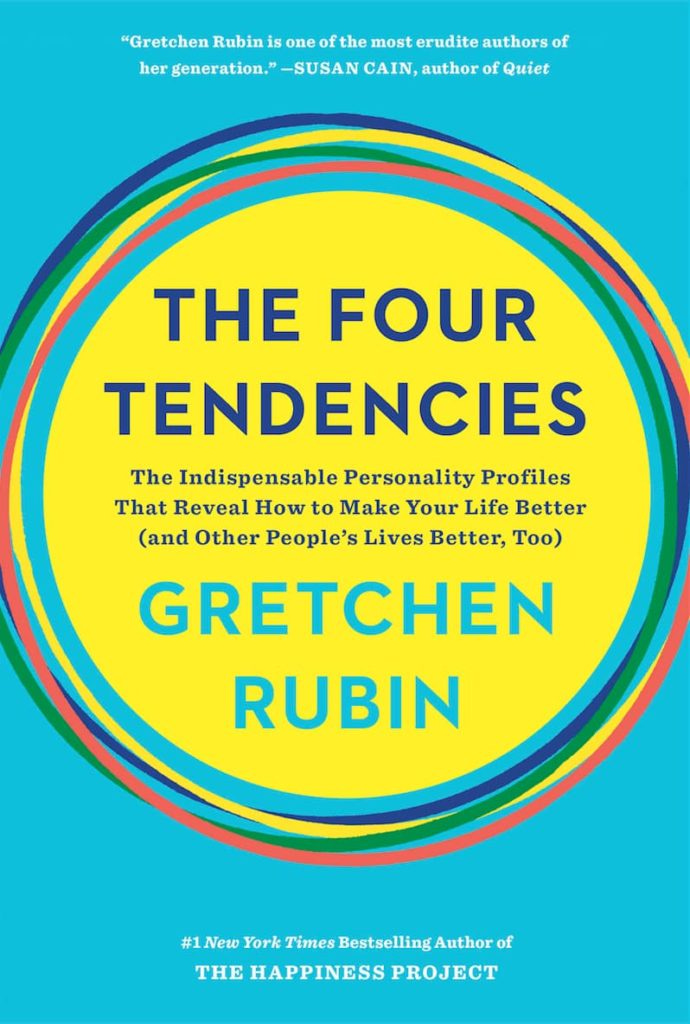
Co-Working Update
Co-working for paid subscribers and Success & Accountability Coaching clients will be held this Friday April 5th from 12-3pm EDT.
Please note: The April 22nd co-working session has been rescheduled to Monday April 29th from 12-3pm EDT. We will no longer meet on April 22nd and will instead meet on the 29th.
You can learn more about Quarter 2 co-working and access the Zoom links here.
When I was writing my dissertation, I reached out to various people who I thought could coach me in my process. The thing is, I wasn’t so much looking for someone to teach me how to write a dissertation, but rather, I wanted someone to provide me with some external accountability to keep up my momentum and focus week to week.
Habits researcher Gretchen Rubin created a framework called The Four Tendencies to summarize different ways we respond to external or internal expectations.
I want to talk about Rubin’s framework today, but before I do, I need to state that frameworks that try to collapse all of our lived experiences into categories are not foolproof. Personal and collective obstacles may get in the way of our ideal of functioning in the world, regardless of our personality traits or interests. Rubin herself dedicates a whole book to breaking down her Four Tendencies framework, but her book doesn’t take into account things like disability, accessibility of resources, patriarchy, racism, homophobia and transphobia, and other ideologies that have a very material effect on people’s lived experiences.
That being said, I do still think there are interesting takeaways from Rubin’s Four Tendencies framework. For the purpose of today’s newsletter, I invite you to take what works for you and leave the rest as I walk us through her approach.
According to Rubin, there are four tendencies: Upholders, Questioners, Obligers, and Rebels.
Here is a basic summary:
Upholders respond readily to their own expectations, as well as the expectations imposed by others. Questioners tend to meet their own expectations, but resist the expectations of others. Obligers resist the expectations they impose on themselves, but respond well to external expectations. And Rebels resist their own expectations, as well as others.
Rubin also describes the four in this way:
In a nutshell:
Upholders want to know what should be done.
Questioners want justifications.
Obligers need accountability.
Rebels want freedom to do something their own way.
Rubin makes it clear that none of the tendencies are “better” or “worse” than another and shares examples of times when each tendency might thrive or stumble.
However…it was hard for me at first not to perceive the Upholder tendency as an ideal tendency: more productive, more reliable, and for whom things come more easily. In my efforts to unlearn white supremacy culture’s reliance on perfectionism, urgency, and the concept that one person has the right answer, I’ve worked hard to reframe putting the Upholder tendency on a pedestal.
If I had polled people, my guess is that folks would have thought I was an Upholder. But I’m not. I’m an Obliger who has spent years researching productivity and time management. I have a robust toolkit of practices and approaches that align best with my positive response to external expectations.
Here are some of the tools that have been most helpful to me as an Obliger:
Gamifying my to-do list with apps like Todoist or Finch
Co-working with friends to increase my focus during short-term work sessions
Using an online scheduler for coaching, which lets folks know when I am and am not available (this is helpful so I don’t overbook myself)
Weekly meetings with bosses to report my progress and share my to-do list for the week
Biweekly meetings with my dissertation advisor to help keep up momentum
Monthly meetings with my coach to set goals for my month
Most (but certainly not all) of my coaching clients also report being Obligers. This makes sense, as my main offering is literally called Success & Accountability Coaching. As I mentioned above, I knew that having an external person checking in with me would help me to keep up the momentum on my dissertation. I couldn’t find that person, so I built my business to support other people like me: folks who knew what they had to do, but they just needed a little extra support determining what to focus on first and a little external expectation to help keep them on track to completion.
If you’re curious about which of Rubin’s Four Tendencies you align with, you can take her online quiz here. Please note that you’ll need to enter in your email address for the quiz results to show up on your screen, but you will not be added to Rubin’s mailing list unless you click the “Yes, I want to subscribe” button in the email she’ll send you.
I’m curious to hear what your tendency is and whether or not you feel like it aligns with your actual experience with inner and outer expectations! I invite you to share your tendency below in a comment.
Before We Close Up for Today
I am seeking two Success & Accountability Coaching clients who want to start a 6-month package in April. If you’re a professor or grad student, this timing is great for helping you progress on your projects in the summer and prepare for Fall semester! After these two spots fill, my books will be closed until June. If you’d like to secure your spot, you can learn more about the offerings and book a discovery call here to chat.
Take good care,
Dr. Kate







